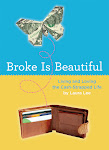All of these strategies share a few key assumptions: that demand for cars within the Millennial generation is just waiting to be unlocked; that as the economy slowly recovers, today’s young people will eventually want to buy cars as much as their parents and grandparents did; that a finer-tuned appeal to Millennial values can coax them into dealerships.
Perhaps. But what if these assumptions are simply wrong? What if Millennials’ aversion to car-buying isn’t a temporary side effect of the recession, but part of a permanent generational shift in tastes and spending habits? It’s a question that applies not only to cars, but to several other traditional categories of big spending—most notably, housing. And its answer has large implications for the future shape of the economy—and for the speed of recovery.
Half of a typical family’s spending today goes to transportation and housing, according to the latest Consumer Expenditure Survey, released by the Bureau of Labor Statistics. At the height of the housing bubble, residential construction and related activities accounted for more than a quarter of the economy in metro areas like Las Vegas and Orlando. Nationwide, new-car and new-truck purchases hovered near historic highs. But Millennials have turned against both cars and houses in dramatic and historic fashion. Just as car sales have plummeted among their age cohort, the share of young people getting their first mortgage between 2009 and 2011 is half what it was just 10 years ago, according to a Federal Reserve study.
Needless to say, the Great Recession is responsible for some of the decline. But it’s highly possible that a perfect storm of economic and demographic factors—from high gas prices, to re-urbanization, to stagnating wages, to new technologies enabling a different kind of consumption—has fundamentally changed the game for Millennials. The largest generation in American history might never spend as lavishly as its parents did—nor on the same things. Since the end of World War II, new cars and suburban houses have powered the world’s largest economy and propelled our most impressive recoveries. Millennials may have lost interest in both.
Instant Pot Christmas Roast
6 years ago






